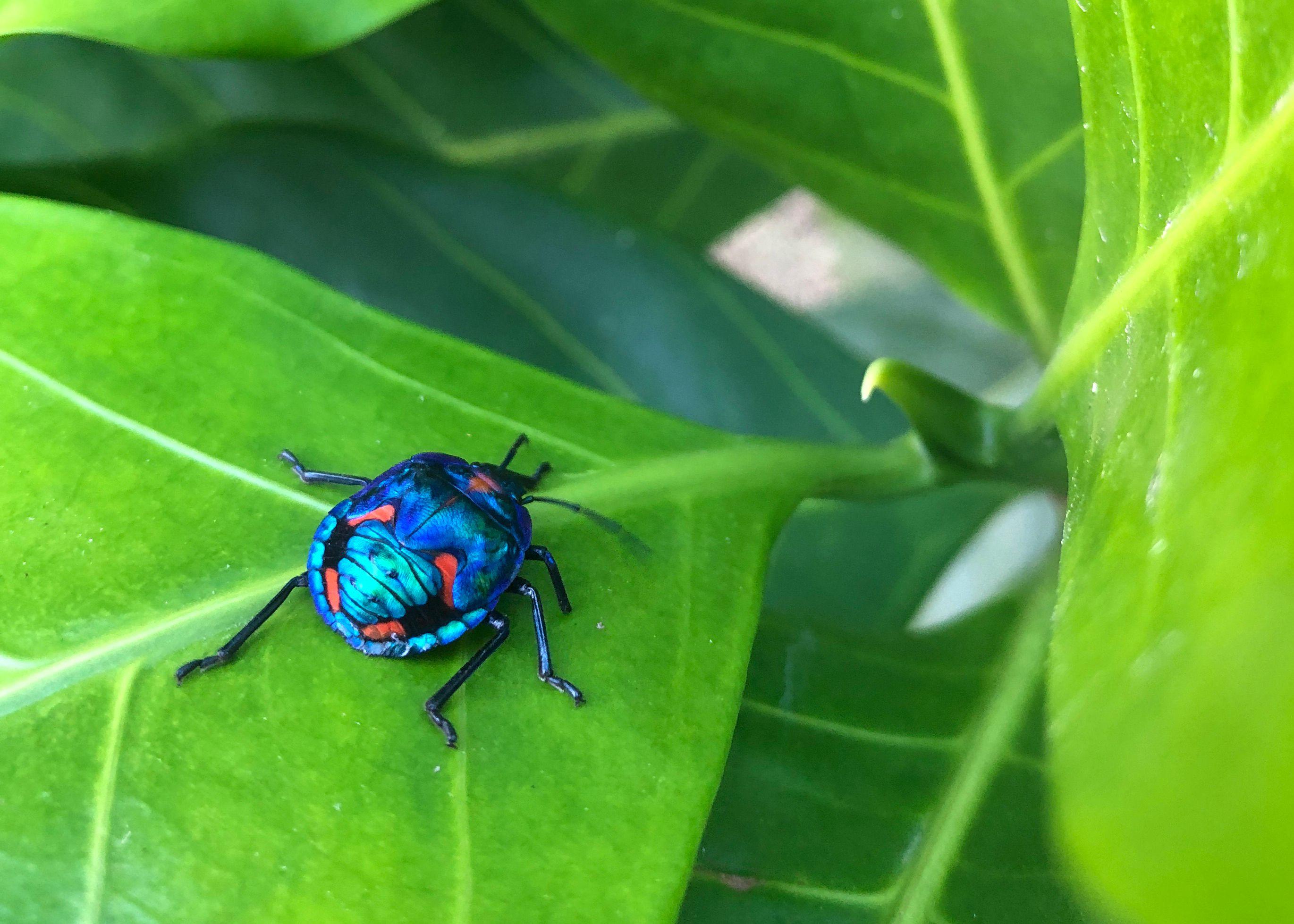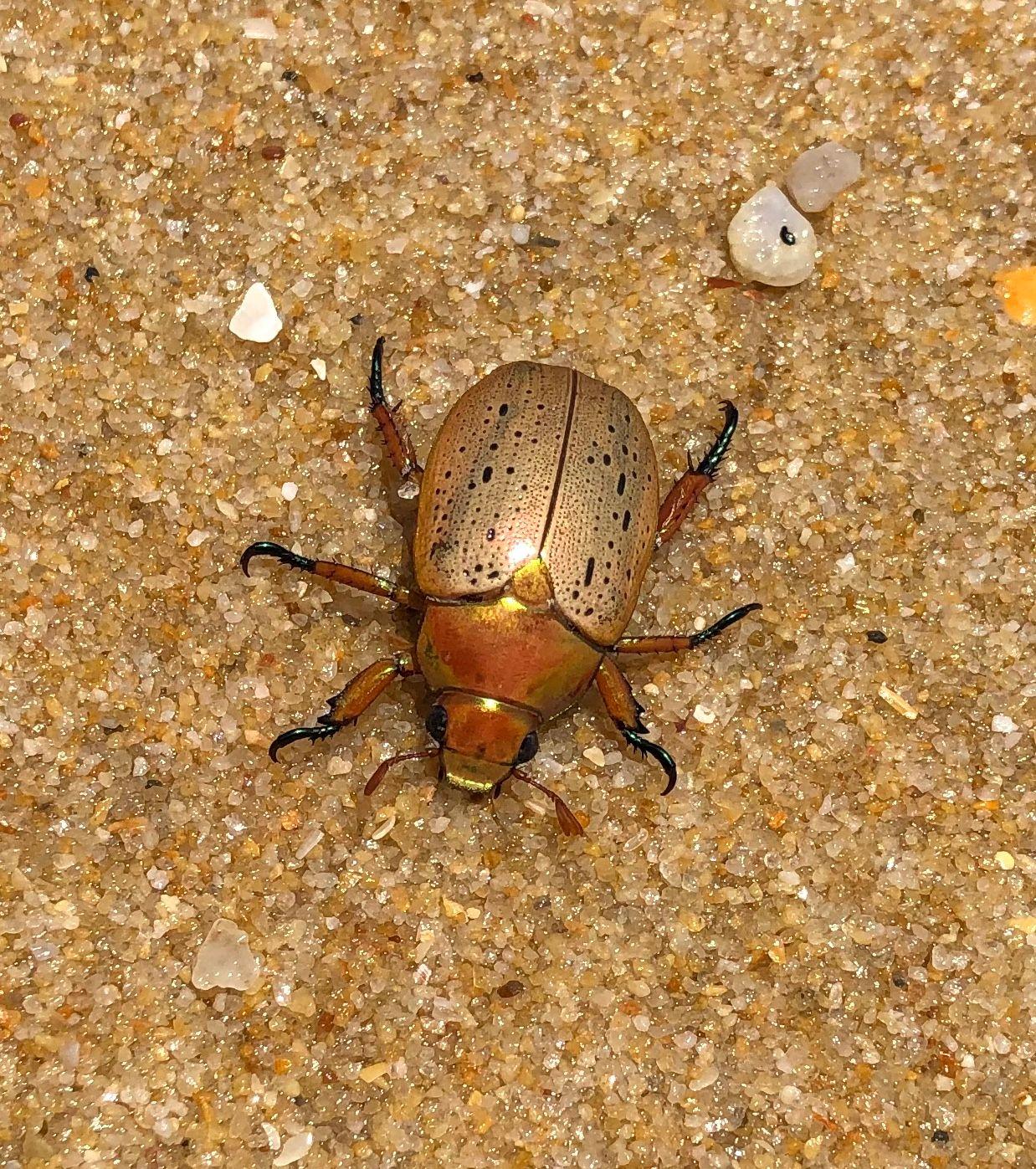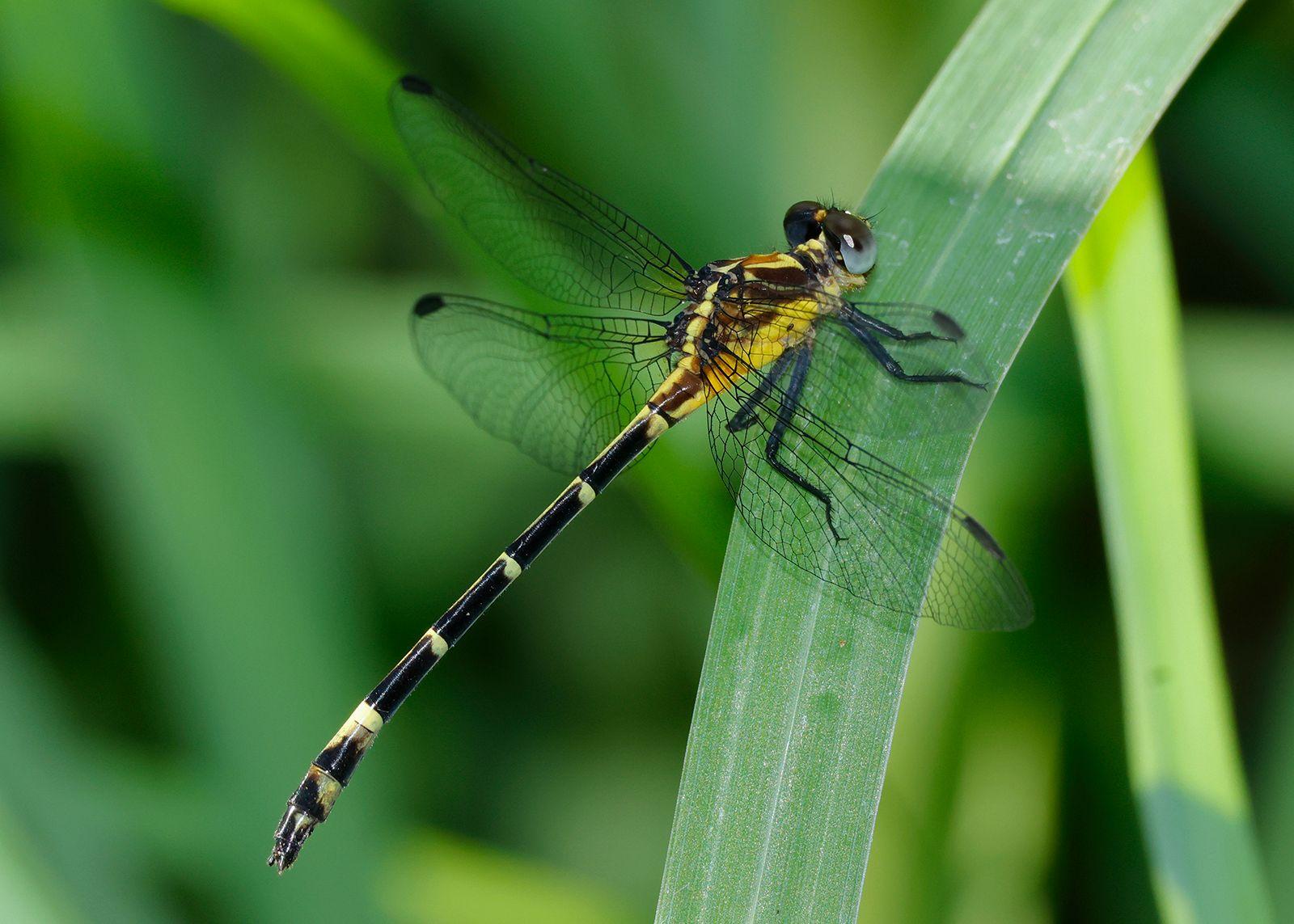Scientists call on public to help save insects and other invertebrates

Hibiscus harlequin bug in Brisbane front yard. Image: Jaana Dielenberg.
Media Release
24 June 2025
Many of Australia’s invertebrates, which include insects and other animals without backbones, are doing it tough and almost 1000 are threatened with extinction.
Invertebrates Australia and the Biodiversity Council are jointly raising awareness of the problem and promoting fun, impactful ways that the community can help, such as planting more flowers and recording insects in our gardens and parks.
According to the two scientist-led organisations, Australia can’t afford to keep taking our ‘cutie crawlies’ for granted. Encounters with them make us happy and without them our food production and natural ecosystems will collapse.
Associate Professor Kate Umbers from Western Sydney University, who is also the Managing Director of Invertebrates Australia, said that there is breath-taking variety in Australia’s invertebrates right in our backyards, including threatened species.
"Creating critter havens is just as good for us as it is for them because it provides us with connections to nature right outside our doors.
“Invertebrates include the corals that build the Great Barrier Reef, starfish, giant cuttlefish, octopuses, clams, dragonflies, ants, snails, beetles and stunning butterflies, giant earthworms and so many more. They underpin land, freshwater and marine environments.
“They perform many vital functions like pollination, recycling waste, purifying water, improving soil and controlling pests. In conservation, we ignore them at our peril”
“Almost 1000 Australian invertebrates are now at risk of extinction, and it's estimated that between 1-3 species are becoming extinct every week. Pollution, habitat loss, invasive species, natural resource extraction and climate change are driving declines.

Christmas beetles are a welcome sight in the warmer months, but populations appear to be in decline. Image: Jaana Dielenberg.
“The good news is that because invertebrates are everywhere, every Australian household can be part of solutions to help the invertebrates near them through simple and genuinely fun activities.
“Avoiding pesticides and creating habitat helps mitigate pollution and habitat loss, two of the biggest threats to invertebrates.
“Because invertebrate conservation is in its infancy in Australia, collective action now will add up to big benefits in the short term once everyone joins the movement,” Umbers said.
How to help invertebrates:
- Plant native flowers to feed pollinating insects.
- Avoid or cut down on insecticides, especially broad-spectrum sprays outdoors. Take the No Spray Spring pledge!
- Provide some habitat - leave piles of twigs, leaves and logs at the back of your garden beds.
- Cut your light pollution - switch off outdoor lights when you aren’t outside and close your curtains at night.
- Be a citizen scientist - record sightings in iNaturalist to help scientists better understand how things are doing.

Providing habitat in your garden will attract interesting 'cutie crawlies' like dragonflies. Image: silram / iNaturalist CC BY-NC.
Biodiversity Council member Professor John Woinarski from Charles Darwin University led a study to estimate the number of non-marine Australian invertebrate species that have become extinct since Europeans arrived in 1788.
“We estimated that at least 1,500 species are likely to have become extinct in those 236 years, with the true number likely to be closer to 9,000.
“This matters to every person as invertebrates are the foundation of all healthy environments and a livable planet. Invertebrates provide myriad essential functions that people depend on like pollinating crops and breaking down organic matter.
“As we lose invertebrates the health of our crops, waterways, forests and even local parks and backyard gardens will decline.
“Despite their incredible importance, there has been a long-running bias against invertebrates, with little funding available for their research and conservation.
“It is important that Australia’s federal and state and territory governments, and the community, give much greater priority to understanding, monitoring and protecting our invertebrates,” Woinarski said.














